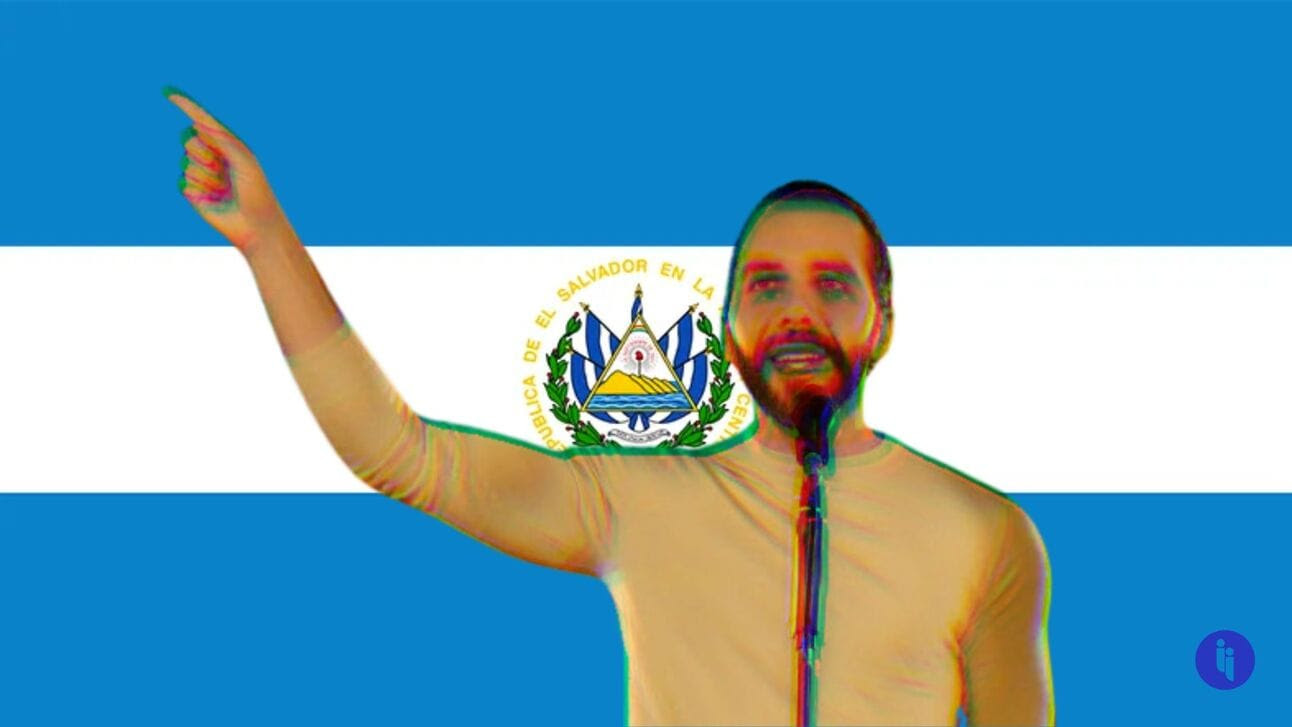El Salvador’s president, Nayib Bukele, has won a thumping victory in Sunday’s presidential election, keeping him at the helm of the Central American country for a constitution-bending second term.
While celebrating from the balcony (🇸🇻) of the National Palace in San Salvador, Bukele declared, “this will be the first time where one sole party rules a country in a completely democratic system. The opposition has been pulverised”.
And he’s got a point: the president won a stunning ~83% of the vote, giving him near total control of the legislative assembly. 83% is an almost North Korean number, unheard of in modern El Salvador and, frankly, in almost any democracy.
Stay on top of your world from inside your inbox.
Subscribe for free today and receive way much more insights.
Trusted by 114,000+ subscribers
No spam. No noise. Unsubscribe any time.
How’d he do it? It’s best explained with a single statistic: under his rule, the country’s murder rate has plunged by 90%.
For years, El Salvador was regarded as the world’s deadliest place not at war, as multinational gangs like MS13 and Barrio 18 extorted 70% of businesses, intimidated authorities, and recruited despondent youngsters. The wealthy hunkered down in gated compounds while others fled north.
Governments veered from social programs to hard-line crackdowns, and even tried a ‘truce’ with the gangs in 2012. But a gradual drop in violence really started to accelerate under the tougher approach of President Bukele, who:
- declared a state of emergency in 2022
- arrested around 75,000 gang members, and
- locked them up in a massive new prison.
He started tweeting to mark murder-free days, announcing the country had racked up 500 of them by last year, compared to just seven in the two decades before his term. El Faro, an acclaimed local news outlet, even wrote that “the gangs do not exist in this moment as El Salvador knew them for decades.”
For anyone who knows El Salvador, this is quite simply remarkable.
Of course, Bukele has his critics:
- He’s now incarcerated 8% of the young male population
- Many are held without due process and will stand in mass trials
- Officials also reportedly entered into negotiations with the gangs
- Other factors may have contributed to the drop in violence (like an evolution in gang behaviour), and
- He’s filled the Supreme Court with friendly judges, while not shying away from using security forces to intimidate legislators
But sure, while Bukele has his critics, not many of them are in El Salvador, where 92.4% of folks still back his approach. This partly explains why the 42-year-old faced little resistance as he consolidated control and stretched the constitution to run for this second term.
So what’s next? If Bukele’s first term was all about security, his second will be on the economy – with the gangs now subdued, Bukele can focus on El Salvador’s stubborn poverty rates, declining exports, and lagging GDP growth.
INTRIGUE’S TAKE
Bukele is bucking the trend in Latin America in some big ways here.
First, it’s worth recalling he’s actually a third-party candidate, who’s now single-handedly ended the traditional two-party system: the old left and right parties barely cobbled together 10% of the vote on Sunday.
Second, he’s bucking Latin America’s anti-incumbent trend, which has seen voters boot out all kinds of governments that deliver middling outcomes.
And third, in these first two, he’s also bucking an entrenched feeling of inevitability for many voters across the continent, who’ve been losing faith in their institutions and their ability to bring meaningful change to their lives.
But that all leaves us with a fourth question – when Salvadoran folks eventually decide it’s time for Bukele to go, will he be willing to buck his region’s long history of leaders who’ve simply refused to listen?
Also worth noting:
- While the overall murder rate has plunged, the UN says violent deaths of women have increased in the country.









